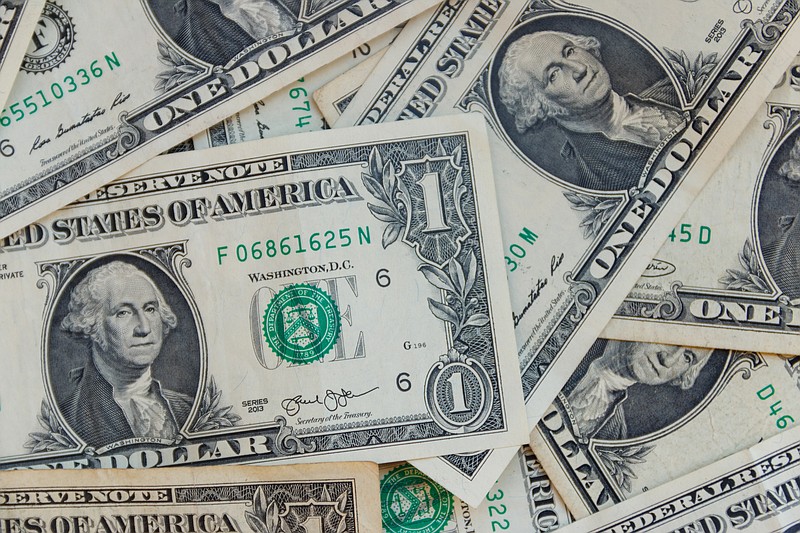WASHINGTON (AP) - The U.S. Treasury is projecting that it will need to borrow $617 billion in the final three months of 2020 as the government boosts the sale of Treasury securities to cover record budget deficits.
Treasury Department officials said Monday that the $617 billion in marketable borrowing in the October-December quarter would be up 35.9% from the $454 billion that the government borrowed in the July-September quarter. But it would be far below the all-time record of $2.75 trillion borrowed in the April-June quarter.
The record borrowing total came after Congress passed $3 trillion in relief measures to provide $1,200 payments to individuals, support for small businesses and expanded unemployment benefits of $600 per week.
That money has been credited with helping the country avoid a deep depression after widespread shutdowns resulted in the loss of 22 million jobs.
The government's borrowing estimate of $617 billion for the current quarter is much lower than the $1.22 trillion it estimated would be needed three months ago. That figure was essentially a place holder until Congress completed negotiations on another round of economic support.
But those negotiations have yet to be completed, reflecting a sharp divide between Democrats and Republicans over how large the next relief bill should be. It is unclear whether legislation may still be passed after the election or whether more support will now wait until a new Congress is installed in January.
The Treasury estimated Monday that government borrowing would jump to $1.13 trillion in the January-March quarter next year, an amount that could be used to cover further relief measures approved by Congress.
The steep increases in government borrowing are needed to cover the massive deficits the government is now incurring as tax revenues have fallen during the pandemic while spending on relief programs has surged.
The deficit for the 2020 budget year, which ended Sept. 1, totaled a record $3.1 trillion, more than double the previous record set in 2009 when the government was spending heavily to deal with a deep recession following the 2008 financial crisis.
